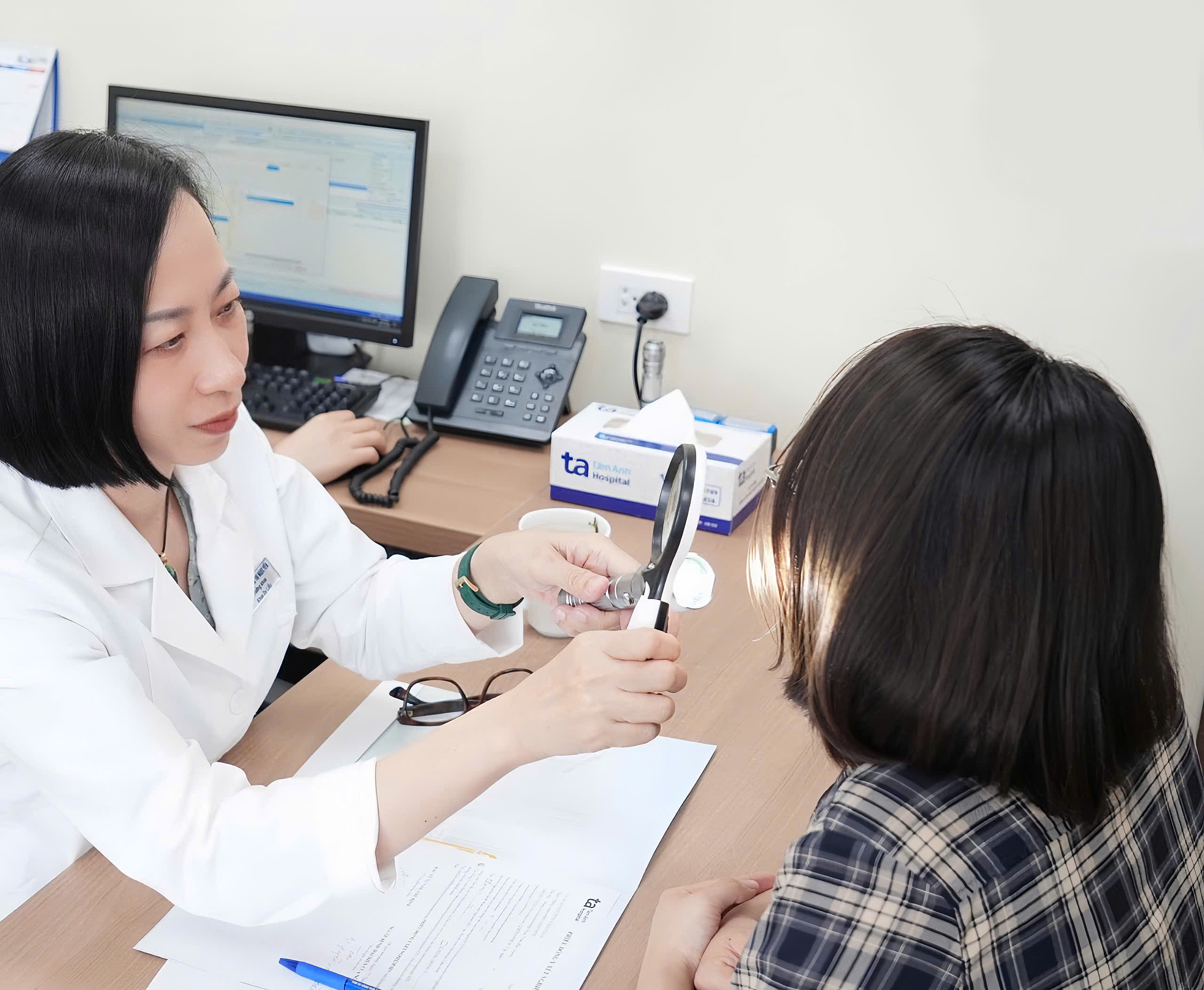According to Doctor Quach Thu Trang from the Department of Dermatology at Tam Anh General Hospital, Hanoi, the average person can lose 50-100 hairs per day. If you're losing significantly more than this, accompanied by symptoms like hair falling out in clumps, noticeable bald patches, a widening hair parting, easily exposed scalp, hair loss even without washing or brushing, thin and brittle hair, or hair not regrowing in affected areas, it could be a sign of an underlying medical condition that requires a doctor's consultation.
Many people begin to notice thinning hair, increased shedding, and difficulty regrowing hair in their 40s and 50s. Middle-age hair loss not only affects appearance but is also related to physiological factors, hormones, and overall health. If detected and addressed promptly, this condition can be managed effectively.
Doctor Trang explains that hair loss in middle age often stems from multiple causes.
Hormonal decline: Perimenopause and menopause mark a significant decrease in estrogen, a hormone that helps maintain hair growth, in women. This leads to weaker hair follicles, slower hair growth, and increased hair loss. In men, the gradual decline in testosterone with age also affects the hair growth cycle, causing male pattern baldness.
Aging slows down cell regeneration, including epidermal cells and hair follicles. Consequently, hair grows slower, becomes thinner and weaker, and falls out more easily. The gradual degeneration of hair follicles leads to a decrease in hair density over time.
Restrictive diets to manage underlying health conditions common in middle age, such as high blood pressure, diabetes, and dyslipidemia, can also contribute to hair loss. These diets can lead to deficiencies in essential micronutrients like iron, zinc, B vitamins, biotin, and protein, weakening hair and causing increased shedding.
 |
A dermatologist examines a woman. Illustration: Tam Anh General Hospital. |
Chronic stress, sleep deprivation, or mild depression are often experienced in middle age due to work, family, financial pressures, or the health of aging parents. These psychological factors directly impact the hair growth cycle, increasing hair loss.
Certain medical conditions such as thyroid problems, anemia, lupus, diabetes, and liver or kidney dysfunction can cause diffuse hair loss. Side effects of medications for high blood pressure, anticoagulants, chemotherapy, and corticosteroids can also damage hair follicles.
According to Doctor Trang, effectively managing hair loss in middle age requires a combination of lifestyle changes, dietary adjustments, and specialized treatment if necessary. : Ensure a sufficient intake of protein, B vitamins (especially vitamin B7), vitamin D, iron, zinc, and omega-3 fatty acids through diet or supplements. Increase consumption of green vegetables, fresh fruits, nuts, and fatty fish. Avoid excessive dieting or unscientific weight loss regimens. Get 7-8 hours of sleep each night. Engage in stress-reducing activities like meditation, yoga, or walking to help regulate hormones, improve circulation, and support hair follicle recovery.
In cases of severe hair loss or hair loss caused by hormonal imbalances, immune disorders, systemic diseases, or scalp damage, more intensive treatments may be recommended, such as hair growth stimulants. Medications to regulate hormones or supplement specific micronutrients require a doctor's prescription and monitoring. Individuals should not use topical medications or supplements without consulting a doctor.
Doctor Trang notes that several new technologies are effective in treating hair loss, including low-level laser therapy (LLLT) or long-pulsed Nd:YAG laser, which stimulate blood circulation and deeper hair follicle regeneration. PRP (platelet-rich plasma) therapy utilizes injections of the patient's own blood into the scalp to promote hair regrowth. Hair transplantation can be considered in cases of permanent follicle damage that doesn't respond to medical treatment.
Thanh Ba
| Readers can submit questions about skin diseases here for doctors to answer. |












